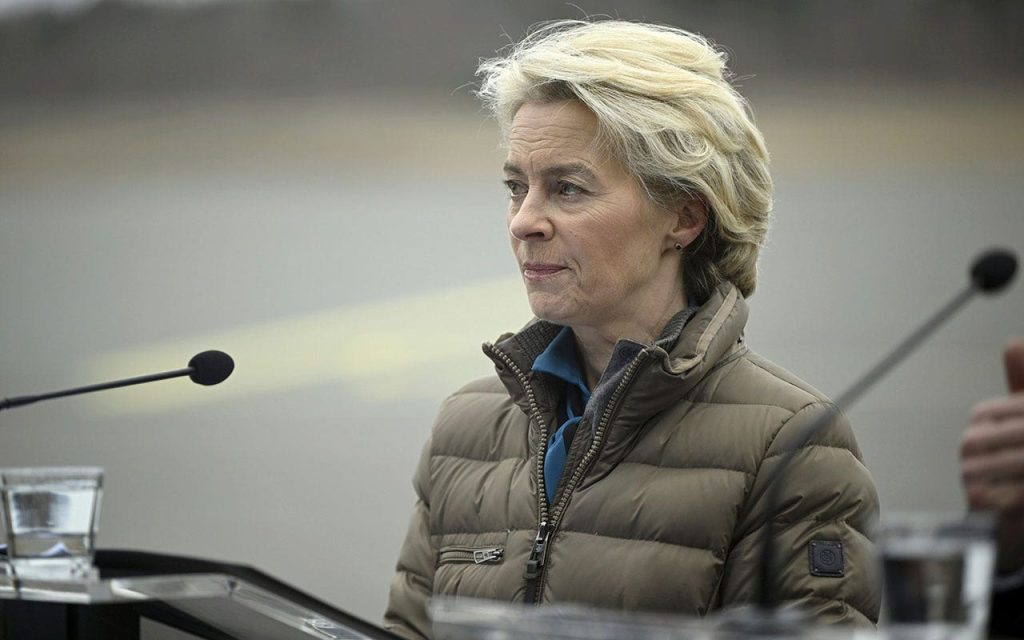European Commission President Ursula von der Leyen has expressed concerns about Finland’s decision to close its border crossings with Russia due to perceived security risks orchestrated by Moscow. Finland extended the closure of eight out of nine checkpoints with Russia, leaving only one open for rail travel. The 832-mile land border between Finland and Russia runs from forests in the south to Arctic terrain in the north, making it an important point of contention. Von der Leyen visited the border in southeastern Finland and emphasized that Finland’s security concerns are also relevant to the entire European Union, particularly in light of recent tensions with Russia.
The Russian government is suspected of organizing migration to Finland through its border, prompting Finland to take the precautionary measure of closing most crossings as a security measure. European Commission President Ursula von der Leyen stressed the importance of solidarity within the EU regarding border security issues. She visited the Finnish border with Prime Minister Petteri Orpo and highlighted the need for a united front in addressing security threats. Orpo noted that warmer weather increased the risk of illegal migration from Russia, making the situation more urgent. Finland’s decision to join NATO in April 2023 has also heightened tensions with Russia, further complicating the security situation along the border.
The migrants crossing into Finland are primarily from the Middle East and Africa, seeking asylum in the EU member state. The influx of migrants has raised concerns about security and stability in Finland and the broader European Union. Von der Leyen, who is seeking a second term as head of the European Commission, has made security a key theme in her campaign. The upcoming European Parliament elections in June will likely shape the EU’s approach to security and migration issues, with von der Leyen advocating for a coordinated response to protect the bloc’s borders and citizens.
Finland’s decision to join NATO and strengthen ties with the EU has had significant implications for its relations with Russia and security posture. The move came after Russia’s invasion of Ukraine, prompting Finland to reconsider its neutrality and align with Western alliances. The historic realignment of Europe’s security landscape has led to increased tensions between Russia and the EU, with the border closure serving as a symbolic gesture of defiance. The situation along the Finland-Russia border underscores the complex geopolitical dynamics at play in the region and the challenges of managing security threats in a fluid and unpredictable environment.
Von der Leyen’s visit to the Finnish border highlighted the importance of maintaining vigilance in the face of external threats and preserving the EU’s security interests. The European Commission President’s call for unity and solidarity in addressing security challenges reflects the need for a coordinated and proactive approach to border security. Finland’s strategic location and historical ties with Russia make it a key player in Europe’s security landscape, with implications for the broader EU. The ongoing migration crisis and regional tensions underscore the need for a comprehensive and strategic response to safeguard Europe’s borders and uphold the principles of security and stability.
In conclusion, the border closure between Finland and Russia has brought to the forefront the security implications of external threats and the need for a collective response within the European Union. Von der Leyen’s visit to the Finnish border underscored the importance of solidarity and vigilance in addressing security challenges and protecting the EU’s borders. The migration crisis, security concerns, and shifting geopolitical dynamics in Europe highlight the complex and interconnected nature of security threats in the region. Finland’s decision to join NATO and strengthen ties with the EU reflects a broader trend towards closer alignment with Western alliances and a proactive approach to security challenges. The upcoming European Parliament elections will likely shape the EU’s security policies and responses to external threats, emphasizing the need for a coordinated and strategic approach to safeguard Europe’s security and stability.


